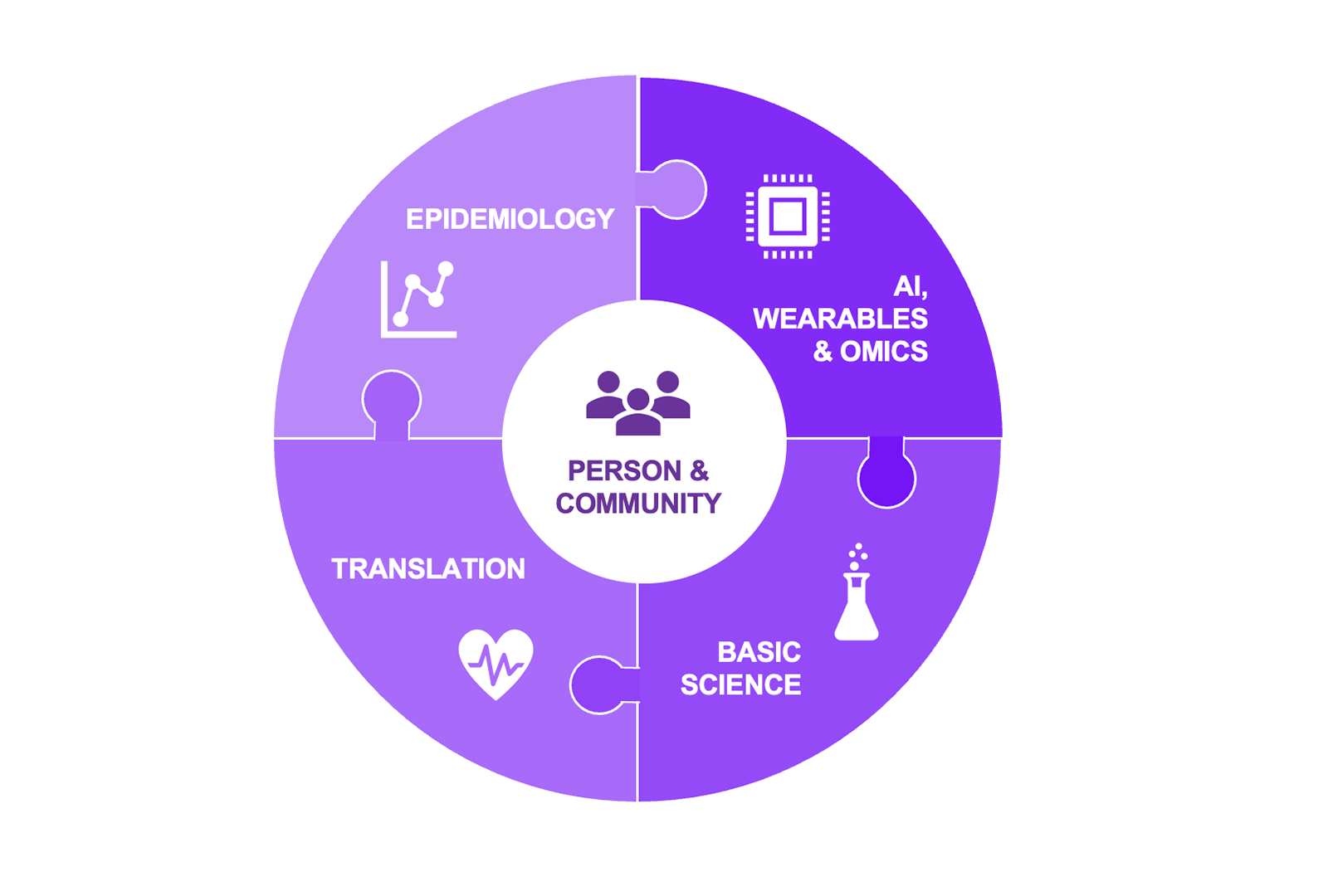
Optimal Aging Institute Research
At its core, NYU Langone’s Optimal Aging Institute strives to build and assemble several cohorts to serve as a platform for aging research, centering both discovery research and translational efforts on the person.
Large cohorts of people and communities have been followed and others will be assembled to create shared resources, including longitudinal data and biorepositories, that energize interdisciplinary research. Our institute utilizes multiple platforms and embraces innovative investigative approaches—artificial intelligence (AI), omics technologies, state-of-the-art core facilities, and expertise across the enterprise—to enable unbiased, multimodal profiling of biological samples, pointing to relevant pathways that are perturbed with aging. These insights form the basis for follow-up studies on the core mechanisms of optimal health.

We then close the loop and return back to the patient by translating the knowledge gained at the population level into individualized prediction and strategies for prevention. Close integration with partners across NYU Langone’s system enables our institute to implement and test interventions with real-world impacts in real-time, advancing practice-changing research to improve outcomes for all.
Vascular Health Research
Central to optimal aging, vascular health provides proven strategies for preventive action. Because of this, closing the gaps between what we know works and what is now done is more imperative than ever.
This work is spearheaded by the Atherosclerosis Risk in Communities Study—Neurocognitive Study (ARIC-NCS), a detailed follow-up over 35 years on 15,792 participants connected to over 2 million specimens. Funded by the National Institutes of Health—and with thousands of participants over 85 years of age, and the longest-followed cohort of African Americans for cognition and heart health—this cohort includes four decades of health-related and banked biomarker data to be related with cognitive function, physical decline, and age-related disease.
Optimizing vascular health is a major research theme of our institute, since vascular disease is both preventable and linked to heart disease, dementia, and kidney disease.
Cohort research infrastructure and expertise has also been leveraged to test interventions to optimize aging. This is exemplified by the recent ACHIEVE clinical trial (Lin et al., 2023, Lancet), which used adults already participating in the ARIC-NCS study as part of the study population and demonstrated how hearing intervention slowed down loss of thinking and memory abilities by 48 percent over three years in older adults with hearing impairment and at increased risk for cognitive decline.
NYU Langone is an ideal environment and uniquely poised to lead this work. Seamless integration across the health system provides a special opportunity to connect discovery and translation, exemplifying the concept of a “learning health system.” New York City is a microcosm of the world, which provides a real opportunity for understanding the myriad factors of aging at play and embedding our research to advance prediction, prevention, and intervention.